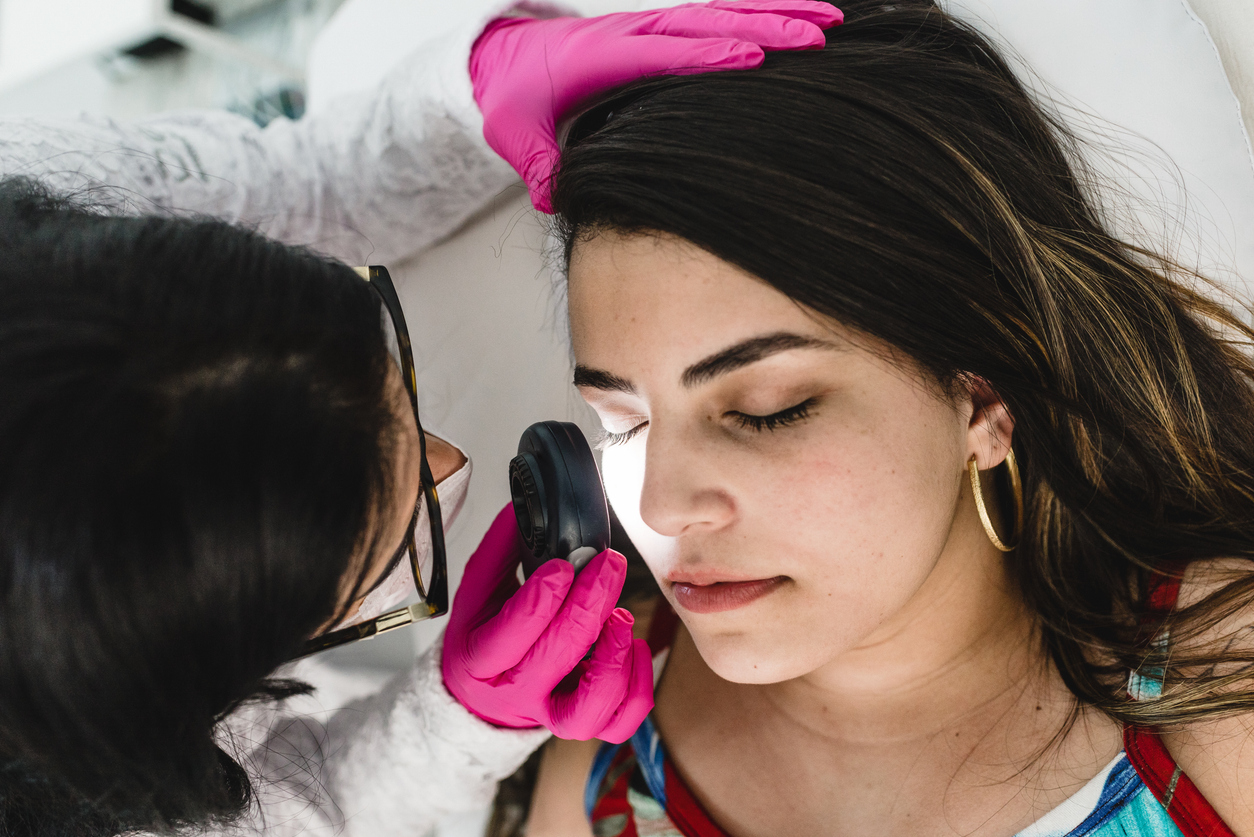When I first noticed a small red patch of skin on the side of my nose, I assumed it was just another stubborn pimple. It wasn’t painful, and it didn’t itch, but it never seemed to go away. I tried every over-the-counter remedy, yet it remained, barely noticeable to others but ever-present in my mirror. After a few months, I mentioned it during a routine visit to my dermatologist. That one conversation changed everything.
Diagnosis: The Word I Didn’t Expect
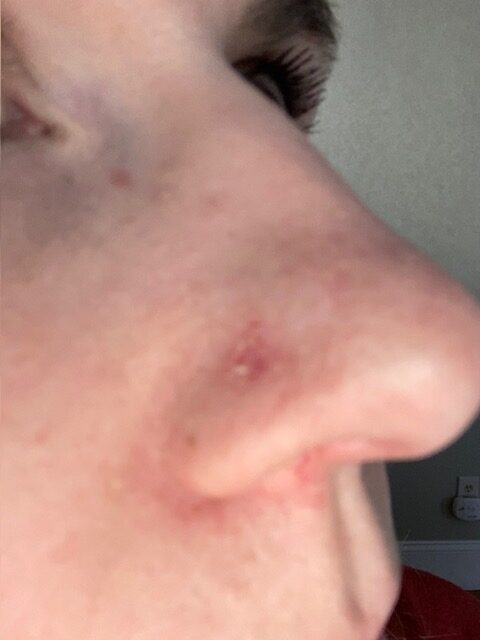
My dermatologist examined the spot and immediately suggested a biopsy. I was surprised but not alarmed—until a few days later when I received the call: I had basal cell carcinoma, the most common type of skin cancer. Though not usually life-threatening, hearing the word “cancer” left me stunned. I was 42, a non-smoker, relatively healthy, and someone who thought she took decent care of her skin. But I had grown up in the era of baby oil and sunbathing, and those years had left their mark.
Because of the location—right on my nose—and the type of cancer, my doctor recommended Mohs surgery. I’d never heard of it before, and the idea of someone cutting into my face terrified me. But she reassured me that Mohs surgery was the most precise way to remove the cancer while preserving as much healthy tissue as possible.
The Day of Surgery: Fear Meets Precision
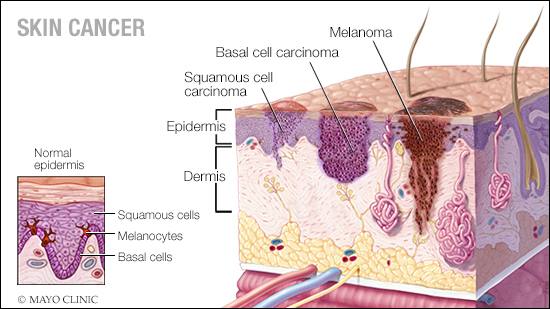
I arrived at the dermatologist’s office early in the morning, nervous and full of questions. Mohs surgery, I learned, is done in stages. The surgeon removes one layer of skin at a time, examines it under a microscope, and then continues removing more only if cancer cells are still present. This technique not only offers the highest cure rate but also minimizes scarring.
The procedure began with local anesthesia—something I was grateful for. The first layer came off quickly. Then, I waited. The waiting, in a sterile room with nothing but my thoughts and a bandage over my nose, felt eternal. After about an hour, the doctor returned. They had to go in again.
It took three rounds to fully remove the cancer. By the end of the third, I was emotionally exhausted but deeply relieved. The tumor was gone.
Reconstruction: More Than Skin Deep
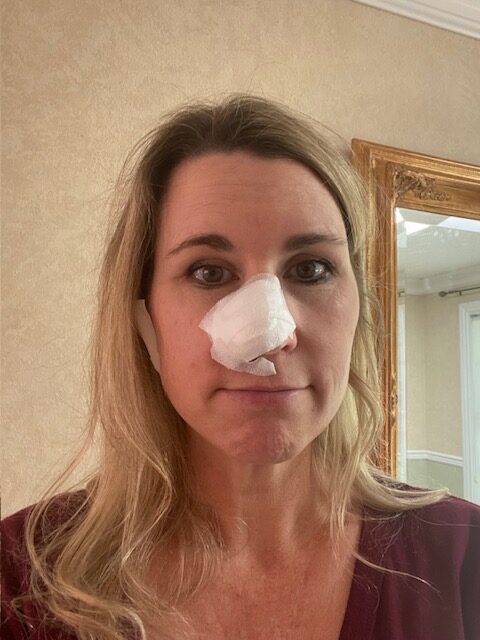
Because of the size and location of the wound, I needed a small skin graft to cover the surgical site. The idea of reconstruction had always felt extreme to me, but now it was a necessity. The doctor took a piece of skin from right in front of my ear—an area that would heal quickly and eventually become scarless —and used it to rebuild the part of my nose that had been removed.
The graft was stitched in place and covered with a protective bandage that I would wear for about 2 weeks. I walked out of the office that day looking like I’d been in a boxing match, but inside I felt victorious. I had faced cancer and made it through.
Recovery: Healing Beyond the Surface
The days following the surgery were filled with rest, care, and some discomfort. My face felt tight, and sleeping was tricky, but the pain was manageable. I was most afraid to look in the mirror. When I finally removed the bandages for the first time, I braced myself.
What I saw wasn’t as bad as I’d feared. Yes, there was swelling and redness, but I could see the shape of my nose was still intact. Over the weeks that followed, my body began its remarkable healing process. The swelling went down, the color evened out, and the stitches dissolved.
Emotionally, recovery took longer. I felt self-conscious for a while—something I hadn’t expected. I became hyper-aware of how people looked at me, even though most barely noticed. But I also felt a new strength. I had faced something that scared me deeply and came through it with grace.
Reflection: What Mohs Surgery Gave Me
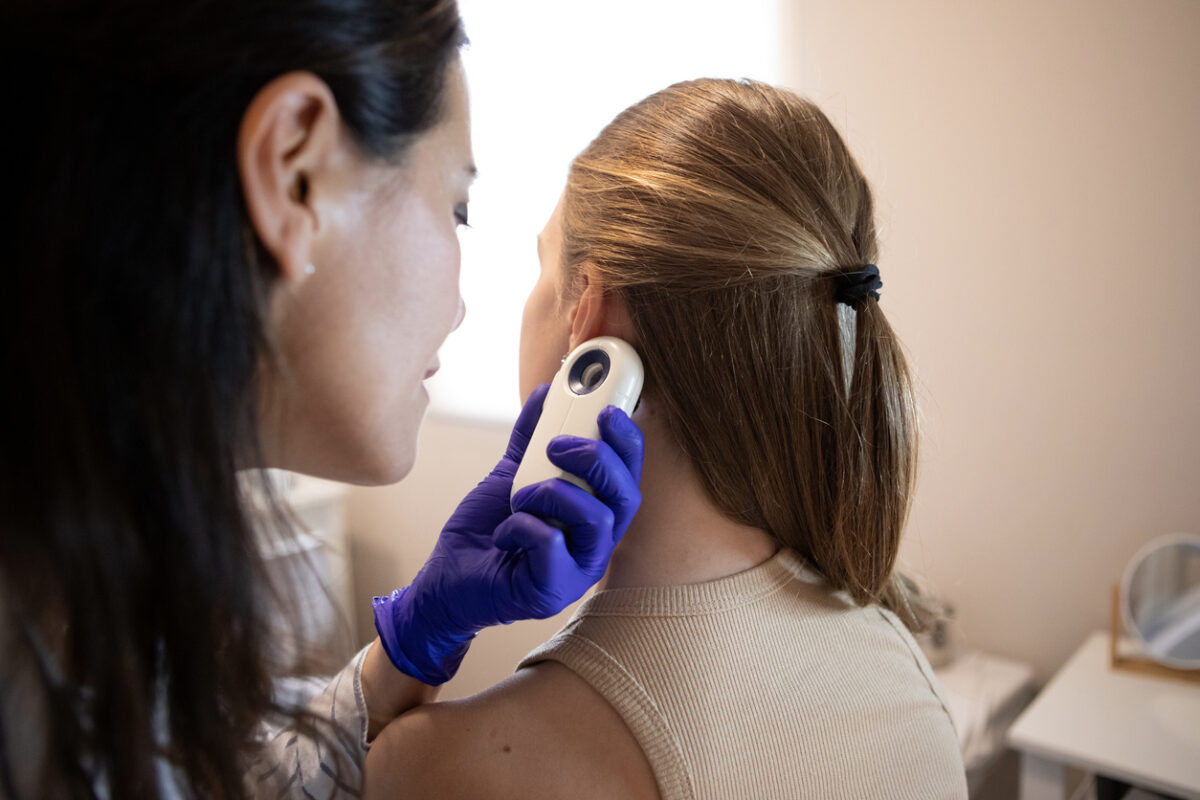
Mohs surgery gave me more than just a cure—it gave me a new perspective. I used to take my skin for granted. I thought applying sunscreen now and then was enough. But skin health isn’t just a matter of vanity—it’s a matter of vigilance.
I now schedule annual skin checks. I wear SPF daily, even in winter. I teach my kids to respect the sun and their skin. I talk about my experience, even when it feels a little vulnerable, because I know it might help someone else.
Mohs surgery is an incredible advancement in dermatology. It offers precision, minimal scarring, and high success rates. But most importantly, it offers peace of mind. For anyone facing this surgery, know that it’s not just about removing cancer—it’s about preserving your life, your confidence, and your future.
A New Kind of Beautiful
The scar on my nose has faded into a small patch of whiteish skin – slightly lighter than the rest of my nose. Most people don’t notice it. I do, of course—but not in the way I once feared. It’s a reminder of resilience, of catching something early, of making the right choices even when they’re scary.
To anyone reading this during Skin Cancer Awareness Month, I urge you: pay attention to your skin. Protect it. And don’t wait to get that spot checked. Your skin tells a story—make sure it’s one of strength, survival, and self-care.
Protect Yourself:




Read Next:
Live Longer by Detecting Skin Cancer Earlier

